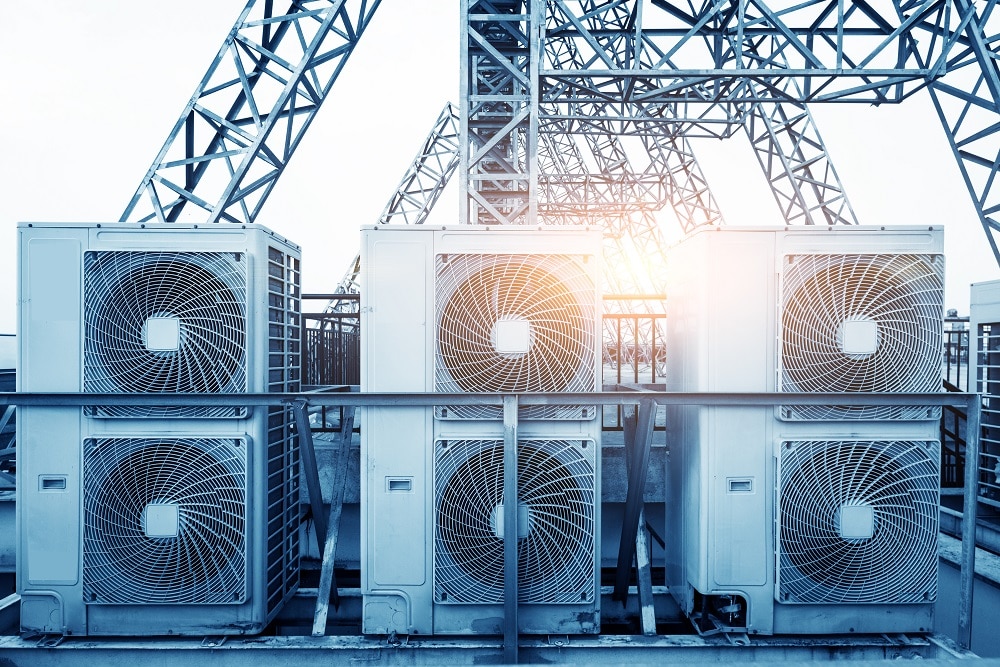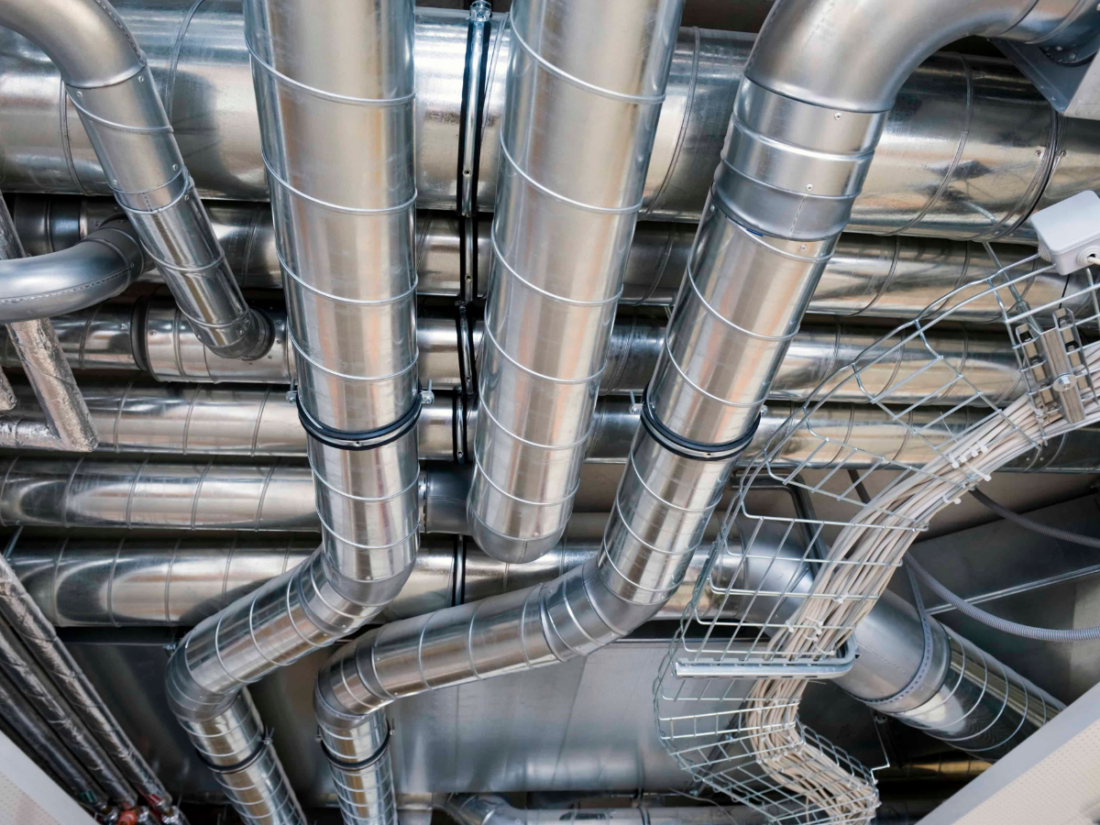Explore how HVAC experts help reduce operating costs significantly
Just How a Trusted Heating And Cooling System Boosts Indoor Air High Quality and Convenience
A trusted cooling and heating system is important for preserving interior air top quality and comfort. It manages temperature and humidity, developing a healthier living environment. Efficient air filtration gets rid of irritants and pollutants, while appropriate moisture degrees prevent mold and mildew development. Routine maintenance guarantees peak efficiency, improving system performance. Comprehending these components discloses exactly how they communicate to produce a fresh ambience. Nevertheless, the connection in between cooling and heating systems and overall well-being goes much deeper than one might anticipate.
Recognizing the Basics of Cooling And Heating Equipments
Cooling and heating systems, essential for modern comfort, include air flow, home heating, and air conditioning components that interact to control interior environments. These systems are made to keep excellent temperatures, making certain that rooms stay comfortable despite outside climate condition. Home heating components, such as heaters or heatpump, offer warmth during chillier months, while cooling units cool spaces when temperature levels increase.
Air flow plays an important role, assisting in the flow of fresh air and getting rid of stale air, which helps in maintaining a balanced environment. Numerous sorts of heating and cooling systems exist, including streamlined and decentralized arrangements, each suited for various building dimensions and objectives. In addition, modern developments have presented clever modern technologies, allowing for enhanced control over interior environment. Recognizing these principles makes it possible for customers to appreciate exactly how cooling and heating systems add to total wellness and comfort in industrial and domestic spaces alike, preparing for discussions on their impact on interior air top quality.
The Role of Air Filtering in Indoor Air High Quality
A noteworthy aspect of maintaining interior air high quality is efficient air filtration, which plays a vital function in getting rid of pollutants and allergens from the environment. HVAC systems equipped with top quality filters can capture a series of impurities, including dirt, pollen, pet dander, and mold and mildew spores. This filtering process greatly reduces the focus of airborne particles, bring about a cleaner and much healthier interior ambience.
Moreover, regular upkeep of air filters is essential to ensure peak efficiency. Clogged or filthy filters can prevent air flow, decreasing the system's effectiveness and possibly enabling toxins to circulate within the room. By changing or cleaning up filters as advised, house owners can boost their HVAC system's capacity to give fresh air.
Humidity Control and Its Effect On Comfort
While lots of might concentrate on temperature policy, moisture control is equally crucial for maintaining comfort in interior settings. High moisture levels can cause pain, making spaces feel warmer than they actually are, while reduced moisture can cause dryness, inflammation, and boosted susceptibility to breathing concerns. A trustworthy HVAC system plays a significant duty in taking care of interior moisture, ensuring that air is neither as well wet neither also completely dry.
Ideal humidity degrees normally vary from 30% to 50%, advertising a comfy ambience. When moisture is well-regulated, owners experience improved thermal convenience, boosted interior air high quality, and lowered threats of mold and mildew development and dirt mite spreading. Correct humidity control can protect furnishings and structural aspects from damage caused by excessive dampness or dry skin. Integrating reliable humidity monitoring right into A/c systems is necessary for promoting a healthy and positive interior atmosphere helpful to wellness and performance.
The Relevance of Routine Maintenance
Routine maintenance of heating and cooling systems is vital for ensuring peak efficiency and longevity. This positive strategy not just minimizes possible breakdowns yet also boosts energy performance, which can result in considerable expense savings with time. Set up inspections enable professionals to determine and address problems prior to they intensify right into costly repair work, ensuring the system runs smoothly.
Furthermore, routine maintenance includes cleaning or changing filters, checking cooling agent degrees, and examining air ducts, every one of which contribute to suitable airflow and system efficiency. By keeping the a/c system, home owners can also avoid too much wear and tear on elements, extending the general life-span of the system.
A well-maintained Heating and cooling system runs silently and securely, minimizing the danger of dangerous scenarios. Finally, regular maintenance is an important financial investment in both the efficiency of HVAC systems and the convenience of indoor atmospheres, inevitably advertising a healthier space.
How Heating And Cooling Systems Reduce Allergens and Pollutants
Efficient a/c systems play a crucial duty in minimizing irritants and toxins within interior atmospheres, thus enhancing total air quality. These systems utilize innovative filtering innovations that catch dust, pollen, mold spores, and pet dog dander, stopping them from distributing throughout the space. High-efficiency particulate air (HEPA) filters are particularly reliable, capturing as much as 99.97% of bits as small as 0.3 microns.

Power Efficiency and Its Benefits for Health
Energy-efficient HVAC systems not just reduce energy intake but also have considerable wellness benefits for passengers. By optimizing energy usage, these systems can maintain constant indoor temperatures, which assists avoid the development of mold and mildew and mildew. Controlling moisture levels is essential for respiratory system health, as excess moisture can worsen allergic reactions and asthma. In addition, energy-efficient systems often integrate sophisticated filtration innovations that boost air quality by eliminating air-borne bits and pollutants, additionally improving total well-being.
Moreover, lower energy usage indicates minimized exhausts from nuclear power plant, adding to cleaner outdoor air quality, which indirectly sustains the health and wellness of homeowners. With a i loved this concentrate on sustainability, energy-efficient these details heating and cooling systems promote a healthier living environment. By investing in such systems, house owners not just save on utility bills yet additionally make a substantial commitment to the health of their neighborhoods and households. Eventually, energy performance in cooling and heating systems cultivates a healthier indoor atmosphere for all.
Enhancing Convenience Through Smart Innovation Integration
As wise innovation remains to progress, its integration into heating and cooling systems considerably enhances indoor convenience. Smart thermostats, for example, allow customers to tailor home heating and cooling schedules based upon their everyday regimens, guaranteeing excellent temperatures when people are home. These devices can learn preferences with time, adjusting settings automatically for optimum comfort.
Smart sensing units monitor indoor air top quality and humidity levels, giving real-time comments that assists maintain a healthy and balanced environment. By interacting with heating and cooling devices, these sensors can trigger changes to airflow and temperature level, ensuring consistent convenience.
Mobile applications further equip customers, enabling push-button control of heating and cooling settings from anywhere, consequently supplying comfort and flexibility.
Frequently Asked Questions

Exactly How Can I Tell if My A/c System Is Efficient?
To figure out HVAC effectiveness, one can examine energy costs for anomalies, inspect for unusual sounds, monitor temperature uniformity, warranty proper air flow, and schedule regular upkeep. These variables collectively indicate the system's operational performance and efficiency.
What Indications Suggest Poor Indoor Air Top Quality?
Signs of poor indoor air top quality consist of relentless odors, excessive dust build-up, raised allergic reaction symptoms, visible mold growth, and fluctuating humidity levels. These signs commonly recommend that ventilation or air filtration systems may be defective or insufficient.
Can a HVAC System Assist With Family Pet Dander?

How Often Should I Change My Air Filters?
Air filters must normally be replaced every 1 to 3 months, relying on use and interior air high quality. HVAC experts. Routine replacement assists keep reliable air flow and reduces dirt, allergens, and various other bits in the home atmosphere
What Are the Costs of Heating And Cooling System Installment?
The expenses of HVAC system installation generally range from $3,000 to $7,000, relying on variables such as system type, home size, and neighborhood labor rates. Added features may increase general expenses significantly.
A trusted Cooling and heating system is essential for keeping interior air quality and comfort. Cooling and heating systems, basic for contemporary comfort, incorporate air flow, air, and home heating conditioning parts that function together to control indoor environments. Reliable Heating and cooling systems play a necessary function in reducing irritants and contaminants within indoor settings, thus boosting total air high quality. A Heating and cooling system can substantially minimize pet dander by using advanced filtering systems and regular upkeep (HVAC experts). The costs of A/c system installation commonly range from $3,000 to $7,000, depending on variables such as system type, home size, and local labor rates